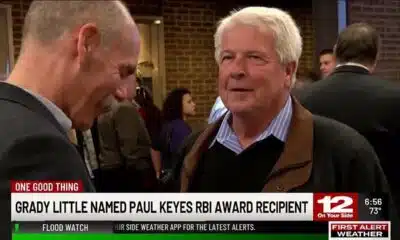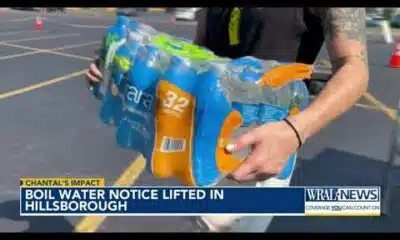(The Center Square) – A nonprofit public-interest litigation firm filed a lawsuit Monday alleging President Donald Trump’s “Liberation Day” tariffs require congressional approval.
The Liberty Justice Center, based in Texas, challenged the administration’s reciprocal tariffs, which Trump announced on April 2 and suspended on April 9, hours after they went into effect.
The Liberty Justice Center filing argues that the administration has no authority to issue across-the-board worldwide tariffs without congressional approval. The nonprofits lawsuit alleges Trump has broadly overstepped his authority by claiming “the authority to unilaterally levy tariffs on goods imported from any and every country in the world, at any rate, calculated via any methodology – or mere caprice – immediately, with no notice, or public comment, or phase-in, or delay in implementation, despite massive economic impacts that are likely to do severe damage to the global economy.”
The suit alleges that the statute Trump has used to justify the tariffs, the International Emergency Economic Powers Act, doesn’t give Trump the authority he thinks it does.
“His claimed emergency is a figment of his own imagination: trade deficits, which have persisted for decades without causing economic harm, are not an emergency,” according to the lawsuit. “Nor do these trade deficits constitute an ‘unusual and extraordinary threat.'”
The suit asks the U.S. Court of International Trade to “declare the President’s unprecedented power grab illegal, enjoin the operation of the executive actions that purport to impose these tariffs under the IEEPA, and reaffirm this country’s core founding principle: there shall be no taxation without representation.”
Liberty Justice Center filed the case on behalf of New York-based wine and spirit importers VOS Selections; Pennsylvania-based freshwater fishing supplier FishUSA; Utah-based plumbing and irrigation suppliers Genova Pipe; Virginia-based toy designer MicroKits LLC; and Vermont-based women’s bicycling company Terry Precision Cycling.
All five companies import products from other countries affected by the tariffs, including the 10% baseline tariffs.
The suit argues Trump’s tariffs were over broad and disregarded existing trade agreements.
“These tariffs even applied to places with no civilian population or international trade activity, such as the British Indian Ocean Territory, whose only human inhabitants belong to a joint American and British military base on the island of Diego Garcia, and the Heard and McDonald Islands, which are inhabited only by penguins and seals,” Liberty Justice Center attorneys noted in the court filing.
Liberty Justice Center said that Trump’s so-called “reciprocal” tariffs were crude calculations: “The chosen formula is not an accepted methodology for calculating trade barriers and has no basis in economic theory.”
The Liberty Justice Center action also takes issues with the idea that trade deficits are bad. Trump has repeatedly said that U.S. trade deficits are the result of trading partners ripping off the U.S. for decades.
“Nor are trade deficits an emergency or even necessarily a problem; they simply mean that some other country sells lots of things Americans want to buy, or that its people are unwilling or unable (often because of poverty) to purchase many American goods,” according to the lawsuit.
Trump has made audacious promises about his tariffs on the campaign trail and since inauguration. He has said tariffs will make the U.S. “rich as hell,” bring back manufacturing jobs lost to lower-wage countries in decades past and shift the tax burden away from U.S. families.
A tariff is a tax on imported goods. The importer pays the tax and can either absorb the loss or pass the tax on to consumers in the form of higher prices.
In his “Liberation Day” speech, Trump said foreign nations for decades have stolen American jobs, factories and industries. He said the tariffs would bring in new jobs, factories and industries and return the U.S. to a manufacturing superpower.
“Our country and its taxpayers have been ripped off for more than 50 years,” Trump said. “But it is not going to happen anymore.”
Some nations, including China, have responded with retaliatory tariffs on U.S. goods. Others have signaled they are eager to make a deal with the Trump administration. Trump has not yet announced any trade deals. Trump paused the higher tariffs for 90 days, giving his administration limited time to make deals with 75 nations the White House reported reached out seeking trade negotiations.











































